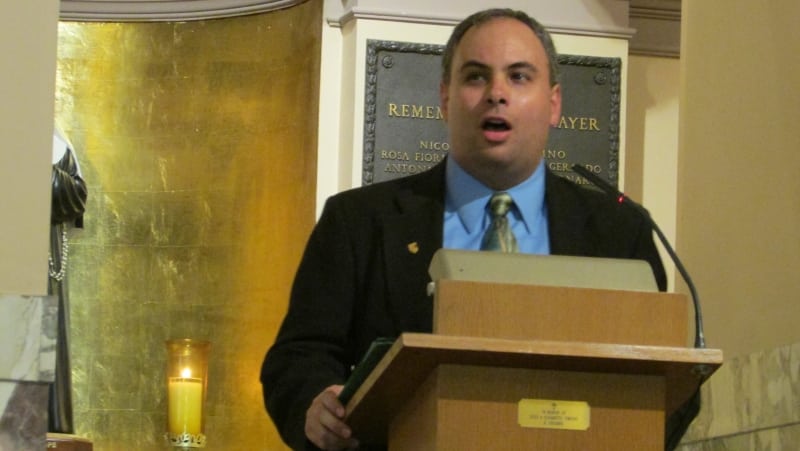Nada te turbe,
nada te espante,
todo se pasa;
Dios no se muda.
La paciencia
todo lo alcanza;
Quien a Dios tiene,
nada le falta;
Solo Dios basta.
This poetic verse is from today’s saint, Teresa of Avila, also known as Teresa of Jesus. Roughly translated it reads:
Let nothing disturb you,
let nothing surprise you,
all things pass away;
God never changes.
Through patience you gain everything.
You who hold onto God
lack nothing.
For God alone is enough.
Appropriately, this is the same message which we here in today’s Scripture readings for liturgy!
In the first reading, the author to the letter to the Ephesians – likely a disciple of Paul writing in his name – recognizes the power of God’s wisdom at work through the life, death and resurrection of Christ. It serves as a reminder to the Christians at Ephesus, who may have been a little too exuberant and presumptuous about their achievements in the spiritual life, that the glory we as Christians experience is a spiritual inheritance – not something we achieved, but which God has given in grace, as a gift. It is Christ who is the one we should celebrate. This alone is the gift and experience which doesn’t pass away, and, if we recognize this, we have all we need in life.
The psalm too, which sees the beauty of God in all creation, recognizes that grandeur as a sign of God’s bountiful and wonderful gifts. Just as Pope Francis has reminded us in his encyclical letter Laudato Si’ on Care for the earth that when we recognize God as the source of all created gifts – including our earth – we change the way we look at the earth. Instead of seeing raw materials to be used simply as we wish, we recognize it as the psalmist does – as an immesurable gift which we must celebrate and share, and respect as a treasured inheritance. Creation too is part of the inheritance God shares with us.
Finally, in the Gospel, Jesus reminds us that when we trust in God’s power in our lives, we will never be left wanting about what to do or say. God’s Spirit lives in us – and it is always enough!
St. Teresa of Avila composed her Nada te turbe prayer at a particularly tumultuous time in her life. She was a Carmelite nun in 16th century Spain. During the time of the Protestant Reformation and upheavels in European society, she herself was also dedicated to reform – first within her cloistered contemplative religious community, and within the spiritual life of the Church as well. It was not an easy or predictable path for her, and she faced opposition from her own community and from church leaders. But she was never disturbed, upset, or discouraged by any of it. She held onto God and God’s vision for her life and she truly lacked in nothing – as she so beautifully wrote.
As we journey through a time in our world which is full of upheaval and uncertainty, we can find great comfort and encouragement from this woman of God. She reminds us that when we see our lives and our world with God’s eyes, we focus on those things that are lasting and good – the spiritual bonds we share with one another and creation. We know the promise that all of creation will be redeemed and transformed, as we have been by Christ. And, if we patiently live according to God’s way, we will always have enough.
God give you peace!


 Request Dr. DelMonico's professional services for a liturgical, ministerial or leadership consultation, or for an academic or public presentation.
Request Dr. DelMonico's professional services for a liturgical, ministerial or leadership consultation, or for an academic or public presentation.